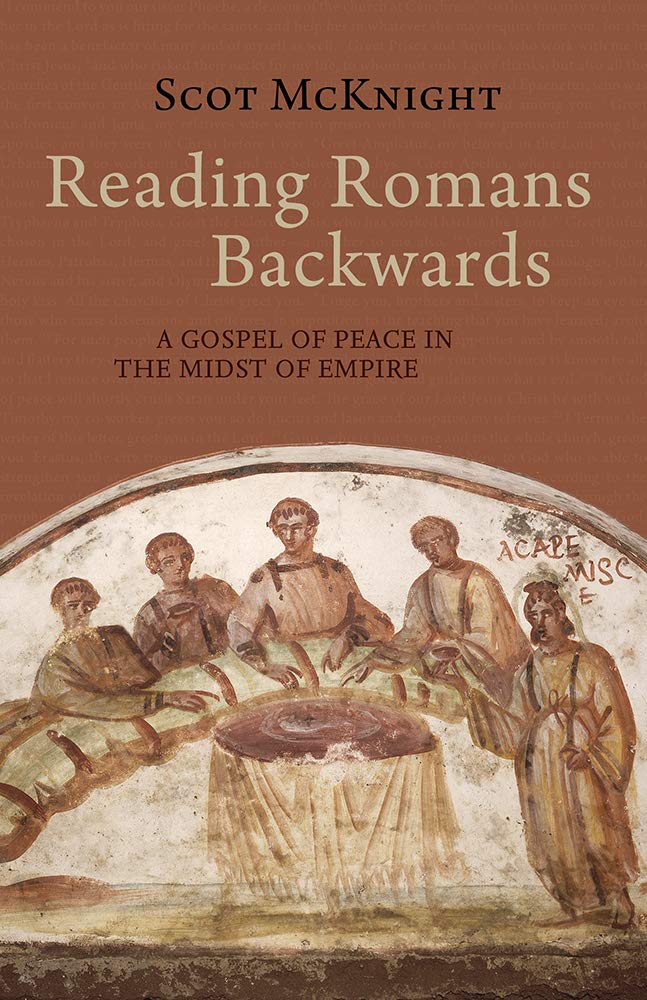Scot McKnight is an American New Testament scholar, historian of early Christianity, theologian, and author who has written widely on the historical Jesus, early Christianity and Christian living. He is currently Professor of New Testament at Northern Baptist Theological Seminary in Lombard, IL. The views expressed in this commentary do not necessarily represent those of BCNN1.
The most common question I get about the not-so-subtle title of Reading Romans Backwards is Why? And, along with that question, I’m asked How can it be taught that way? Read on.
First, since most who read Romans are swamped by the theological depth and debates about it, by the time they get to Romans 9 they may be exhausted and even more if they get to Romans 12. If we don’t read it first we may never get to it, and if we never get to it we will not be reading the letter in its own, fuller context.
Second, our readings of Romans, many of which are profound, will lack social realities if we ignore Romans 12-16. Here we encounter the mission of Paul to go to Spain, and Robert Jewett made (too?) much of this. Here we encounter the names of those in the house churches in Rome (16:3-16), and these names have been studied intensely by Peter Lampe and Jewett, revealing both a high proportion of slaves and the prominence of women. Here we encounter Phoebe, and I think she was a leader in a church next to Corinth and was a benefactor of Paul and others.
Most importantly here we encounter the Weak and the Strong. There are debates here, and I took sides, but whichever view one takes there are almost two chapters addressing them (and the same terms are used in 1 Cor, leading some to think the problems are not that different).
How can we read Romans well if we ignore these social realities? I’ve read many studies of Romans who seem to think we can’t bring these Strong and Weak folks into the picture until they get mentioned in Romans 14-15. I can assure you of this: they were sitting there at 1:1 and responding from 1:1 on.
Third, Romans becomes a pastoral, ecclesial letter the moment one learns to read the letter in light of Romans 12-16. It’s not abstract theology, which has its place, but pastoral theology front and center. There’s lament here: 9:3, 10:1, 11:1.
Fourth, once we begin to plumb Romans out of this social reality context we see things we may not have noticed, and one example is Romans 11:13. Why does Paul here suddenly say he’s now talking to the gentile believers in Rome? Was he talking to them from 9:1 on or was that for the Jewish believers in Rome? Once we read Romans this way the issue of reconciliation of two groups of Christians at odds with one another becomes paramount in Romans.
Source: Christianity Today
All Content & Images are provided by the acknowledged source
